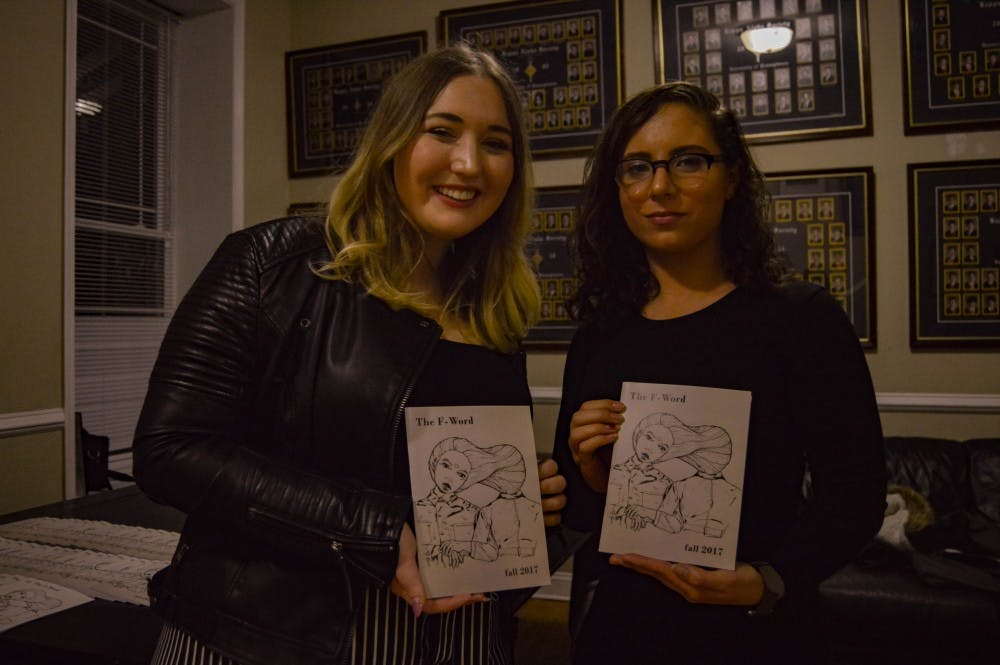Walking into the launch party for the latest edition of The F–Word, it seems impossible that Penn’s only feminist arts and literary magazine was relaunched just three years ago. The gathering was held on Feb. 22 to celebrate the release of the inaugural fall mini–issue. The event featured an array of snacks and beverages as well as attendees who were eager to have important conversations about gender and equality.
Three years ago, Co–Editors–in–Chief Regina Salmons (C ‘18) and Sara Albert (C ‘18) formed a small group with the purpose of reviving The F–Word, which used to be a fixture on Penn’s campus, but stopped publishing five years ago. Sara says that they had to start from scratch, modernizing the publication by rewriting the mission statement and developing new goals.
A team of seven people worked tirelessly to get the publication off the ground. The publication, which will have annual long issues as well as mini–issues, is composed of 60 pages of poetry, prose, and art. So far they’ve had three, going on four, successful publications. This year, they were able to publish two issues: the longer issue as well as a mini–issue of about half the length, which included works from 17 different students, touching on topics of feminism, identity, gender, and social justice.
Managing Editor Sophia Clark (C ‘19) joined the publication her sophomore year. She wanted to be involved in a literary space, which she had not yet found at Penn. Sophia emphasized that you don’t have to be a writer to find a home in the F–Word community. She shared some of her own work in the most recent issue, andhopes to elevate as many voices as possible by rallying submissions from the community.
One of the organization's goals is to change how people view the term “feminist.” “Many people consider themselves feminist but people have a lot of ideas about what feminism is and it's kind of elusive, but also very pigeonholed, depending on how you think about it,” Sophia says.
The F–Word considers themselves a feminist space, in the most modern sense of the term. They’re attempting to create a dialogue on campus that doesn’t stop with one type of person, but rather includes a variety of people with different viewpoints and backgrounds.
“We're trying to create a wider conversation about feminism and what it means to be a feminist now,” says Sara, “We firmly believe in intersectional feminism. If it isn't intersectional feminism, it isn't feminism.”
Another goal of the publication is to begin a blog that can serve as a complement to the literary magazine and more easily respond to issues in the Philadelphia community by focusing on journalistic pieces. In addition, they’d like to begin a stream of dialogue with the more conservative groups on campus, like College Republicans and The Statesman.
Sara and Sophia emphasize the open–door policy of their community, which allows new members to join at any time. They’re always accepting submissions and looking for new editors. Their GBMs are every Wednesday from 9–10 p.m. in Kelly Writers House.
Even in a divisive time, F–Word wants to create a place of acceptance on campus. In the letter to the readers in the newest issue, Regina and Sara emphasize: “Our aim is to inspire dialogue, activism, and grassroots organizing, so that one day the act of writing to demand equality will no longer be a radical thing.”
A previous version of this article stated that Sophia Clark had not yet published any of her work. She published a piece in the most recent issue of F–Word. 34th Street regrets this error.

